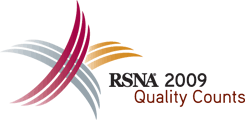
Abstract Archives of the RSNA, 2009
Janice Sung MD, Presenter: Nothing to Disclose
Carol H. Lee MD, Abstract Co-Author: Scientific Advisory Board, Hologic, Inc
Spouse, stockholder, Hologic, Inc
Elizabeth A. Morris MD, Abstract Co-Author: Nothing to Disclose
D. David Dershaw MD, Abstract Co-Author: Nothing to Disclose
To assess the utility of MRI as a screening tool for detecting otherwise occult breast cancers in women with a history of radiation therapy to the chest.
This retrospective study was IRB approved and the need for informed consent was waived. From January 1999 through December 2008, 225 breast MRI examinations in 93 women with a prior history of chest irradiation were identified through the radiology database. For each case, reason for the radiation treatment, age at the time of the first MRI examination, age at the time of radiation treatment, time interval between the treatment and the MRI examination, and number of cases for which biopsy of MRI findings was recommended were noted. The number of cancers diagnosed and the method of detection were also determined.
The majority of patients (81/93) had received radiation as treatment for Hodgkin’s disease, 12 had had non-Hodgkin’s lymphoma, and one had received chest irradiation for acute lymphoblastic leukemia. Age at the time of first MRI ranged from 18 to 63 (mean 42 years). Age at the time of radiation treatment ranged from 5 to 54 years (mean 26 years) and the mean interval between radiation treatment and first screening MRI was 26 years. Biopsy was recommended for 24 (11%) of the 225 of MRI examinations, with a single lesion in 19 and bilateral lesions in 5. Of the 28 lesions that underwent biopsy, 5 (18%) proved to be malignant. During the study period, 7 cancers were diagnosed in 6 patients. Three of these cases were detected by MRI alone, two were detected by mammography alone, and 2 were detected by both mammography and MRI done on the same day. All of the cancers were in Hodgkin’s disease survivors.
Screening MRI resulted in an incremental cancer detection rate of 3% (3/93) among women with a history of prior chest irradiation. Both MRI and mammography should be used to screen women in this high risk group.
Breast MRI will detect otherwise occult breast cancers in women with a prior history of chest irradiation and should be used in conjunction with mammography to screen these women.
Sung, J,
Lee, C,
Morris, E,
Dershaw, D,
Screening Breast MRI in Women with a History of Prior Chest Irradiation. Radiological Society of North America 2009 Scientific Assembly and Annual Meeting, November 29 - December 4, 2009 ,Chicago IL.
http://archive.rsna.org/2009/8006805.html

